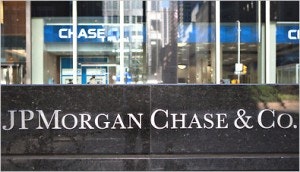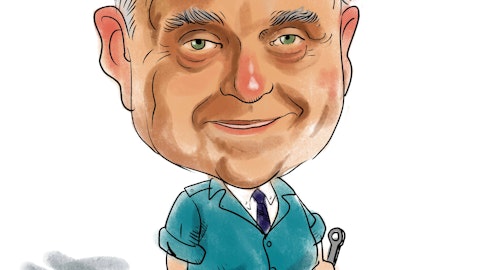The hunt is on, and the witch is Jamie Dimon: CEO and chairman of JPMorgan Chase & Co. (NYSE:JPM) and the fallen angel of big banking. Once the president’s favorite Wall Street titan, Dimon is now everyone’s favorite Wall Street whipping boy.

Dimon is currently the target of a proxy vote that advocates stripping him of the role of bank chairman, the outgrowth of last year’s London Whale trading scandal. The vote is non-binding, but there’s been such a press from outside investor-advisory firms, and such an unrelenting media crush on the subject, that a majority vote could force the board to take the proposed action.
Here are three reasons Dimon’s dual role at JPMorgan Chase & Co. (NYSE:JPM) should remain unchanged, and why the board should seriously consider restoring the $10 million that was stripped of him for his performance in 2012, if not actually raise his pay.
1. Record profit and more record profit
For the first quarter of 2013, JPMorgan reported net income of $6.5 billion — a record. For 2012, JPMorgan Chase & Co. (NYSE:JPM) made $21.3 billion in net income — another record, and the bank’s third year in a row of record income.
When it comes to profit, then, JPMorgan Chase & Co. (NYSE:JPM) has unarguably delivered under the leadership of Jamie Dimon. Investors should be shedding tears of joy over results like this.
2. Enviable stock performance
Investors should continue shedding tears of joy. Year to date, JPMorgan stock has returned 11.42%. In the past year, it’s returned 22.44%. In 2012, it returned 25.7%. For the same periods, Wells Fargo & Co (NYSE:WFC) stock returned 9.7%, 17.84%, and 20.23%, respectively.
For the time period Dimon is being crucified for, he’s done nothing but deliver when it comes to share-price appreciation.
3. Enviable risk-management skills
Yes, this can said with a straight face even in light of the London Whale trading scandal. In fact, said scandal may help make the case. But first, the financial crisis.
Dimon is famously risk averse, and it’s this aversion to risk that kept the bank strong throughout the financial crisis, as well as after. JPMorgan Chase & Co. (NYSE:JPM) was so strong, in fact, it was able to absorb the quickly imploding Bear Stearns at a moment’s notice and stave what probably would otherwise have been an early start to the economic crash.
Both of these banks are still struggling to repair their balance sheets — and their reputations — while Jamie Dimon can honestly tout his bank’s “fortress balance sheet.”
As for the London Whale, the $100 billion derivatives-bet-gone-wrong cost the bank more than $6 billion, but could have potentially cost it more had the wind-down not been handled gingerly and with patience. Dimon took his time, got out of the trades slowly and with care, and almost undoubtedly saved the bank — and its shareholders — significantly more money.
Be careful what you wish for
The board stripped Jamie Dimon of half his 2012 pay because they felt they needed to do something: There had been such an uproar over the $6 billion loss, even though that’s nothing for a bank with more than $2 trillion in assets, and even though JPMorgan’s solvency was never in question at any time. Quite the contrary, as we’ve seen.
Dimon has made it known that he wants to stay on as both CEO and chairman, and has hinted at the fact he may not stay at all if the board tries to strip him of his role of chairman. I don’t blame him. JPMorgan Chase & Co. (NYSE:JPM) has done nothing but perform under his leadership. If it ain’t broke, don’t fix it. And JPMorgan ain’t broke, any way you look at it.
The article Why Jamie Dimon Deserves a Raise originally appeared on Fool.com is written by John Grgurich.
Fool contributor John Grgurich owns shares of Citigroup and JPMorgan Chase. Follow John’s dispatches from the waist-deep, muddy trenches of high finance and capitalism on Twitter @TMFGrgurich. The Motley Fool recommends Wells Fargo. The Motley Fool owns shares of Bank of America, Citigroup, JPMorgan Chase, and Wells Fargo.
Copyright © 1995 – 2013 The Motley Fool, LLC. All rights reserved. The Motley Fool has a disclosure policy.
